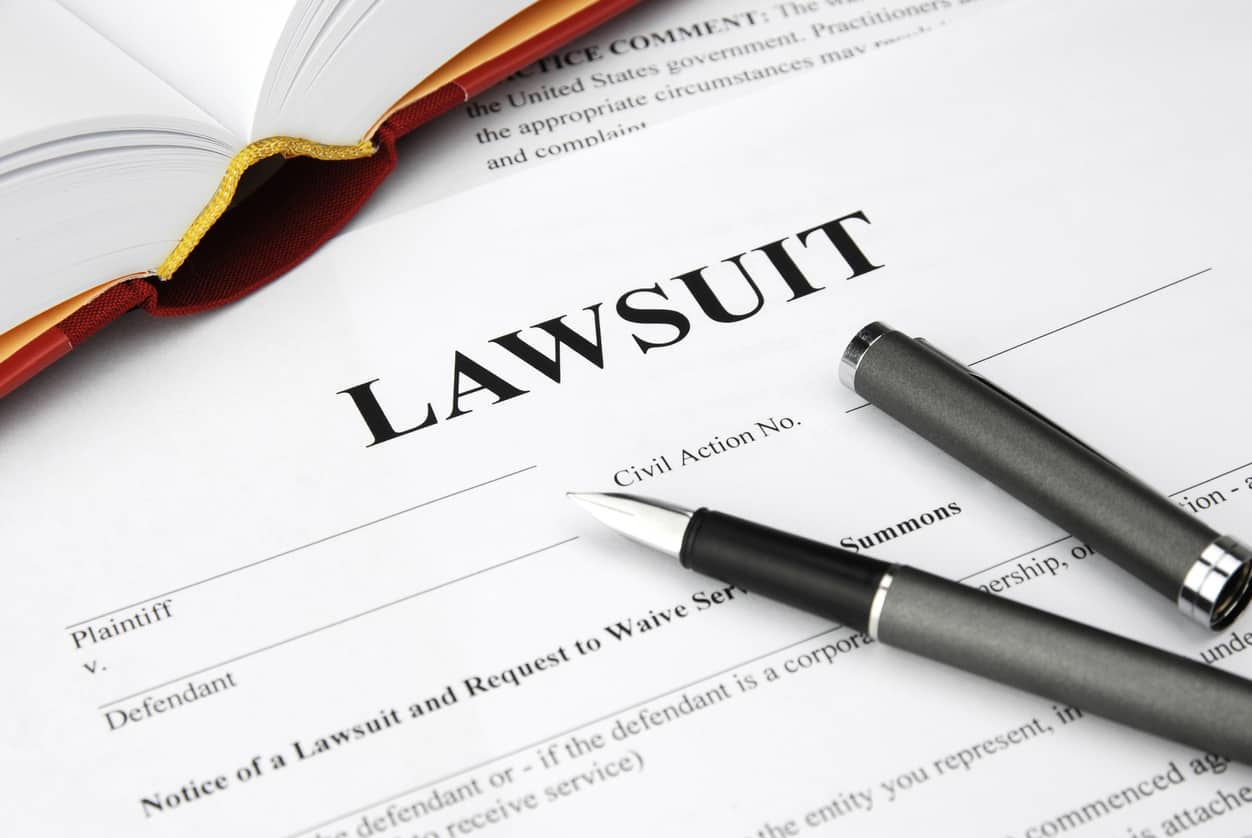Roundup Lawsuits Update 2022
 Thousands of personal injury lawsuits are pending across the country due to the use of the popular weedkiller Roundup. If you have been diagnosed with cancer after using Roundup, you could qualify for a product liability lawsuit to recover damages for medical bills, lost wages, and pain and suffering.
Thousands of personal injury lawsuits are pending across the country due to the use of the popular weedkiller Roundup. If you have been diagnosed with cancer after using Roundup, you could qualify for a product liability lawsuit to recover damages for medical bills, lost wages, and pain and suffering.
Punitive damages, while generally rare, have already been awarded in Roundup cases and could be a possibility due to the nature of the claims. However, every case is unique. The best way to determine the value of your case is by scheduling an attorney consultation to discuss the circumstances of your injury or illness.
If you or someone you love is suffering from using a harmful product such as Roundup, contact an experienced Roundup lawsuit attorney at Rosen Injury Lawyers to evaluate your case. Initial consultations are completely free, call us at.
How Can Rosen Injury Lawyers Help with a Roundup Lawsuit?
 Defective product claims – especially those involving international multi-billion-dollar companies – are extremely complex. We have the experience and resources to stand up to companies you never thought you’d have a chance at fighting. In fact, we do it routinely – and have recovered millions of dollars for our injured clients.
Defective product claims – especially those involving international multi-billion-dollar companies – are extremely complex. We have the experience and resources to stand up to companies you never thought you’d have a chance at fighting. In fact, we do it routinely – and have recovered millions of dollars for our injured clients.
When you hire our award-winning mass tort injury lawyers, we’ll:
- Investigate your claim and review all medical records to determine your eligibility to file a claim
- Collect all evidence of your use of Roundup to support your claim for damages
- Work with experts who can support your case and calculate your compensation award to reflect all future medical needs
- Determine the best way to pursue your claim to maximize your financial award
- Handle all communications, claims, and negotiations with insurance companies
- Send a top-rated litigator to represent you in all court appearances and trial if necessary
We have decades of combined experience handling difficult cases involving harmful products. We are dedicated to helping people fight for justice against big companies that put profits over the safety of consumers. Call today for a free consultation to learn how we can help.
What Are the Roundup Lawsuits?
Roundup has been on the market since 1972; it is one of the most widely used weedkillers in the United States. It was first manufactured by Monsanto, the company that also made Agent Orange, a controversial herbicide used during the Vietnam War.
Roundup is used in residential and industrial farming. Bayer purchased Monsanto in 2018 for $63 billion. When Bayer made the purchase, it inherited thousands of Roundup weedkiller lawsuits pending against Monsanto over the dangerous effects of glyphosate, a key ingredient in Roundup. Many plaintiffs suffered from non-Hodgkin lymphoma (NHL) after exposure to Roundup.
Many lawsuits were consolidated in Multidistrict Litigation (MDL). After losing big in the bellwether cases, Bayer agreed to settle a majority of the pending Roundup cases (about 75%, according to Bayer). That means there are about 30,000 cases (out of roughly 125,000) pending in the settlements.
Early Roundup Cases
A bellwether case is an initial case in an MDL proceeding. There are often multiple bellwether cases that act as test cases. The outcome of these early cases is an indicator of how future cases will be decided. The decisions in bellwether cases can help the parties make strategic decisions based on how they think their client will fare in upcoming cases. For Bayer, the bellwether cases sent a clear message to settle.
In August 2018, a jury in San Francisco awarded plaintiff Dewayne Johnson $289 million after determining that glyphosate caused him to develop cancer. Johnson was a grounds manager for a school district. He regularly used Roundup to spray weeds on school properties. The verdict was based on the jury’s finding that Monsanto failed to warn of the dangers of Roundup. The award consisted of $250 million in punitive damages and about $39.3 million in compensatory damages.
The judge initially reduced the verdict to $78 million. On appeal, the verdict was further reduced to $10.5 million, equally split between punitive and compensatory damages.
In March 2019, a jury awarded $80 million in damages to plaintiff Ed Hardeman, again based on a finding that Monsanto failed to warn consumers of the dangers of using Roundup. Mr. Hardeman developed cancer after years of using Roundup to treat weeds on his property. That award consisted of $5 million in compensatory damages and $75 million in punitive damages.
That award was later reduced to $25 million (all from the reduction of punitive damages), which was upheld on appeal in the 9th Circuit. In August 2021, Bayer petitioned the Supreme Court of the United States for a review of the Hardeman case. Bayer has said it will not engage in further settlement discussions until the Supreme Court rules. In late 2021, the Supreme Court requested input from the Solicitor General. The Solicitor General has not yet filed a brief.
In May 2019, a jury awarded $2 billion to Alva and Alberta Pilliod, a husband and wife who both developed NHL after using Roundup for more than 30 years. Mrs. Pilliod developed NHL brain cancer, and Mr. Pilliod developed NHL that spread to his bones.
The judge reduced their award to $87 million. In November 2021, the California Supreme Court rejected Bayer’s petition to review the Pilliod case.
Settlement of Roundup Cases
In June 2020, Bayer announced that it had allocated up to nearly $11 billion to settle about three-quarters of the pending lawsuits relating to Roundup claims. Bayer later announced that it had set aside an additional $4.5 billion for litigation and settlements.
About $9.6 billion will settle existing litigation and potential cases from people who haven’t yet formally filed a lawsuit. Individuals who participate in the settlement will agree to dismiss their lawsuit or waive their right to sue Bayer. About $1.25 billion was allocated to address future litigation as part of a separate class agreement.
Although Bayer has approved nearly $10 billion for settling known claims, not all settlement amounts will be the same. Many plaintiffs have already rejected the settlement, saying that the amount is not sufficient to cover their damages. Some of those plaintiffs – whose offer from Bayer was between $10,000 and $50,000 – may be pushing to have their cases proceed to trial.
Attempts to Settle Future Roundup Claims
Bayer hoped to cut off future claims by proposing a class-action settlement. As mentioned above, roughly $1.25 billion was allocated to deal with future claims. As part of the proposal, before any class action claims would proceed as part of that agreement, an independent Class Science Panel would determine whether Roundup can cause NHL.
Consumer advocates opposed the agreement since it could limit victims’ rights to sue for illnesses not yet discovered. That agreement would also prohibit plaintiffs from seeking punitive damages. Punitive damages were a significant portion of the award in early jury cases.
In February 2021, the amount proposed for future class-action lawsuits was increased to $2 billion. The proposed settlement period would remain open for four years and would compensate victims with up to $200,000 per claim. The harmful effects of Roundup may not be visible for 10 to 15 years after exposure.
U.S. District Court Judge Vince Chhabria flatly rejected that proposal, calling it “clearly unreasonable.” The judge offered harsh criticism of the terms of the proposal, noting that Bayer was “losing trials left and right” and no doubt desired to lessen future litigation. The judge noted that the proposal would “accomplish a lot for Monsanto” and “far less for the Roundup users who have not been diagnosed with NHL.”
Likely deterred by the denial of its attempt to slam the door on future plaintiffs, Bayer announced that it will replace glyphosate with an alternative ingredient in its residential lawn and garden products beginning in 2023. Roundup will still be available for agricultural use.
Recent Wins for Bayer
In May 2021, Bayer announced that it would be more selective in settling lawsuits, perhaps forcing more cases to trial. Two cases late last year were ruled in Bayer’s favor. While Bayer may be feeling confident over recent wins, there are still 4,005 cases currently pending in the MDL. Thousands more are pending outside of the MDL.
Due to the delay in resolution of the MDL as Bayer awaits the Supreme Court’s decision on the Hardeman case (which is further delayed and now awaiting the Solicitor General’s brief), plaintiffs may increasingly decide to pursue their cases in state courts. That would force Bayer to deploy more resources and fight on multiple fronts, with less predictability about trial outcomes.
Do You Need Help with a Roundup Weedkiller Claim? Call Rosen Injury Lawyers For a Free Consultation
Have you been diagnosed with cancer after using Roundup? You could be entitled to significant compensation, but time is limited. Call today for a free case evaluation with one of our award-winning personal injury attorneys.
We have years of experience handling complex MDL cases, class-action lawsuits, and mass tort cases. We can help you fight for the compensation you deserve and help hold responsible parties accountable.
